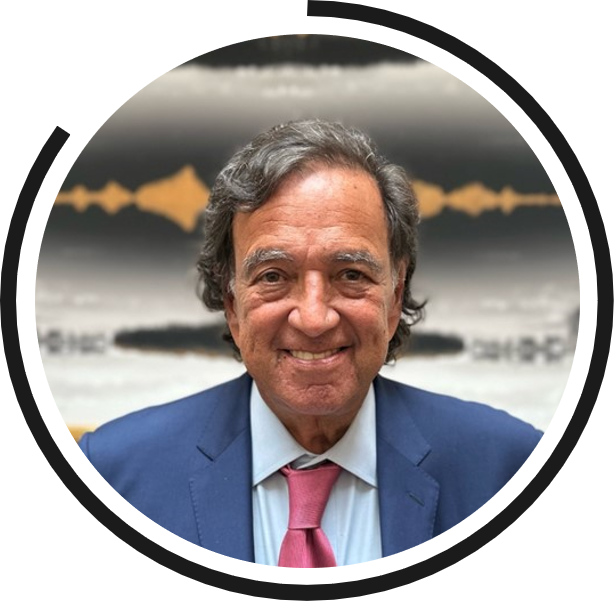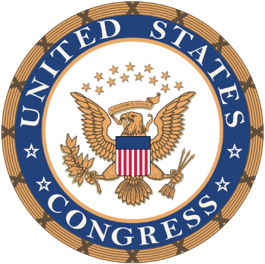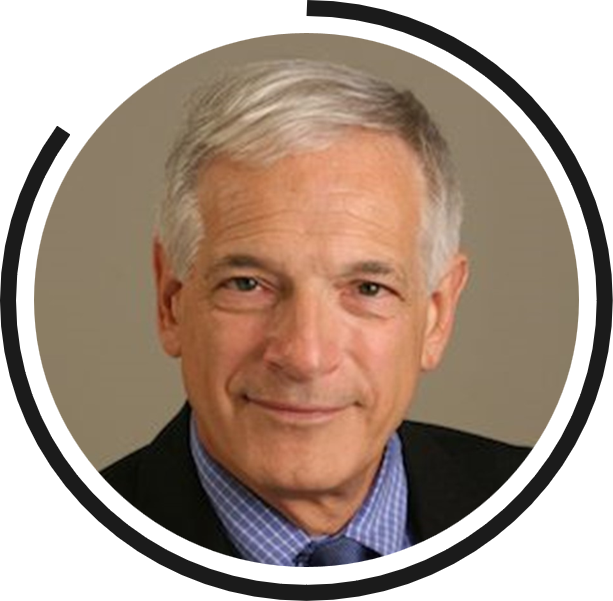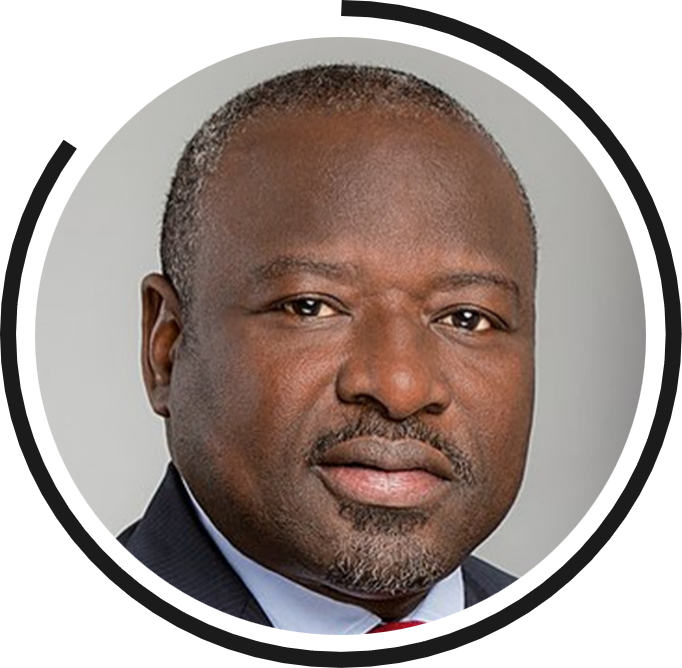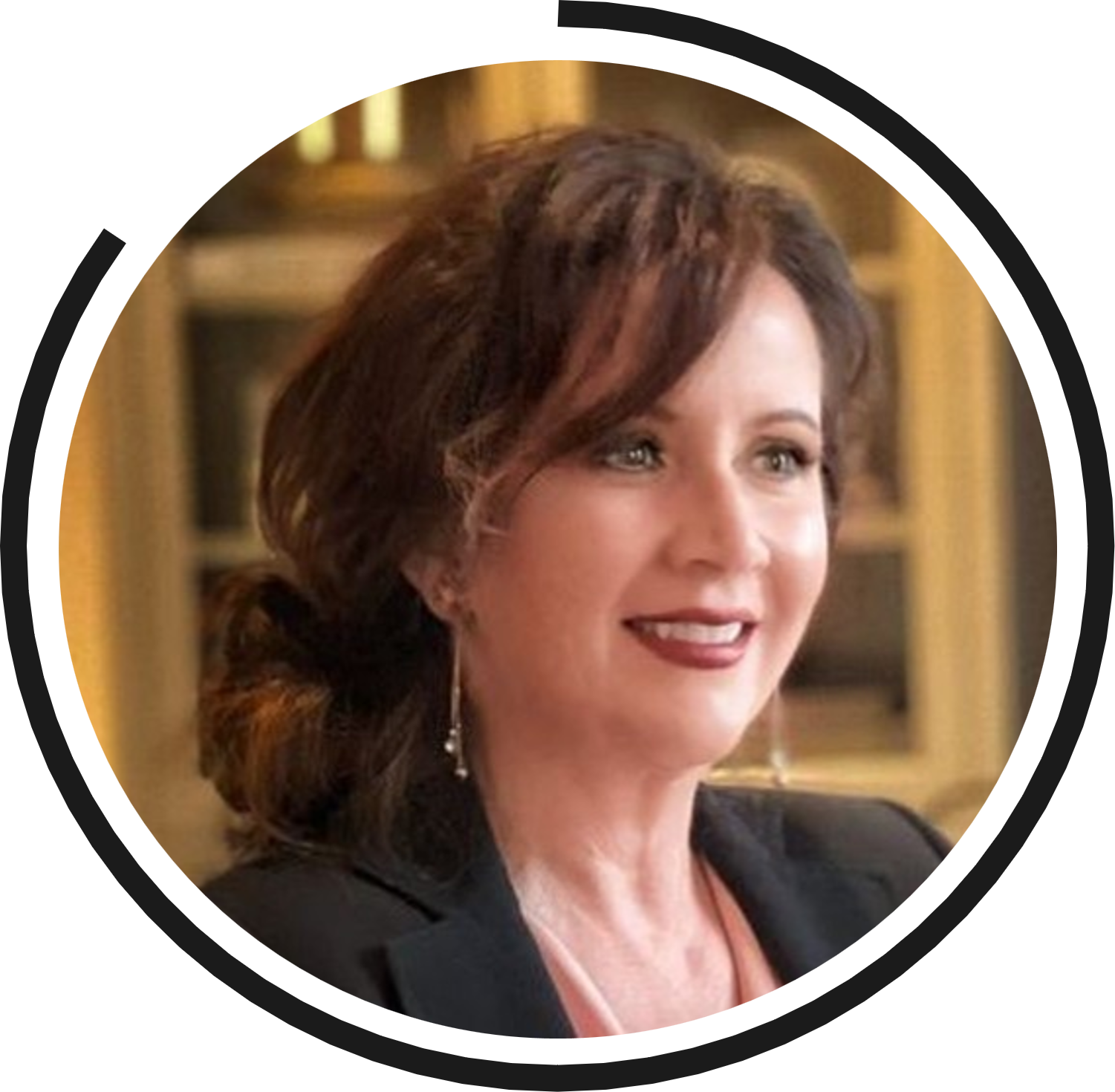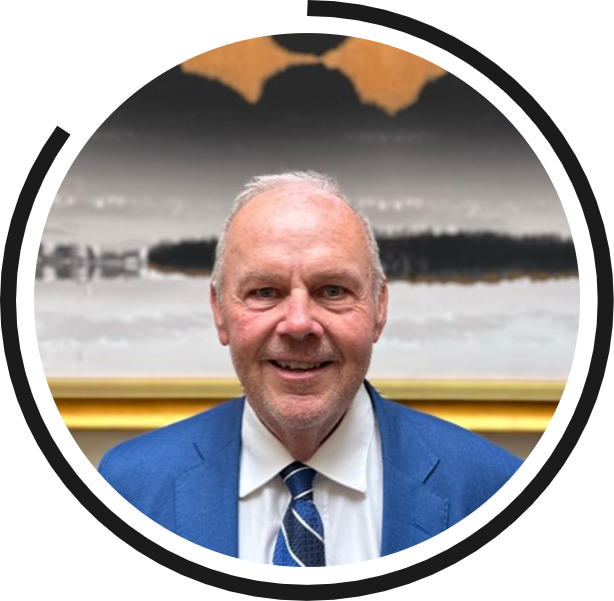Former U.S. Secretary of Energy William Blaine Richardson
Chairman of Executive Advisory Board
Gov. William Blaine Richardson is a former American politician, author, and diplomat who served as the 30th governor of New Mexico from 2003 to 2011. He was also the U.S. Ambassador to the United Nations and Energy Secretary in the Clinton administration, a U.S. Congressman, chairman of the 2004 Democratic National Convention, and chairman of the Democratic Governors Association. As U.S. Energy Secretary he helped found the National Nuclear Security Administration (NNSA).
Gov. Richardson’s journey into politics began during his college years at Tufts University, where he pursued a Master’s degree in international affairs from Tufts’ Fletcher School of Law and Diplomacy. After completing his education, Richardson embarked on a career in public service. He served as a staff member in the U.S. Senate and worked on several Democratic campaigns. In 1982, Richardson made his own foray into politics, winning a seat in the U.S. House of Representatives representing New Mexico’s 3rd congressional district. During his time in Congress, Gov. Richardson established a reputation as a tireless advocate for his constituents and a skilled negotiator.
In 1997, President Bill Clinton appointed Richardson as the U.S. Ambassador to the United Nations. In this role, Gov. Richardson played a crucial role in international diplomacy, representing the United States in various negotiations and working to address global challenges. Following his tenure as ambassador, President Clinton appointed him as the Secretary of Energy in 1998. In this position, Richardson oversaw the nation’s energy policy, focusing on issues such as renewable energy, nuclear nonproliferation, and scientific research. His tenure was marked by efforts to modernize the energy infrastructure, promoting clean and sustainable energy.
In 2002, Richardson decided to return to his home state of New Mexico to run for governor. He won the election and served two terms, from 2003 to 2011. While in office, Gov. Richardson championed initiatives in education, healthcare, and economic development. He prioritized job creation and worked to attract new industries to the state, leading to significant economic growth during his tenure.
Gov. Richardson also was a candidate for the Democratic nomination for the 2008 presidential election. Since then, in December 2012, he became chairman of the Board of Directors of Car Charging Group, the largest independent owner and operator of public electric vehicle charging stations in the United States. In 2013 Richardson joined the Board of Advisors for the Fuel Freedom Foundation.
Today, The Richardson Center provides policy and logistical support to Gov. Richardson as he continues to promote international peace and dialogue and engage directly with foreign leaders, governments and regimes.
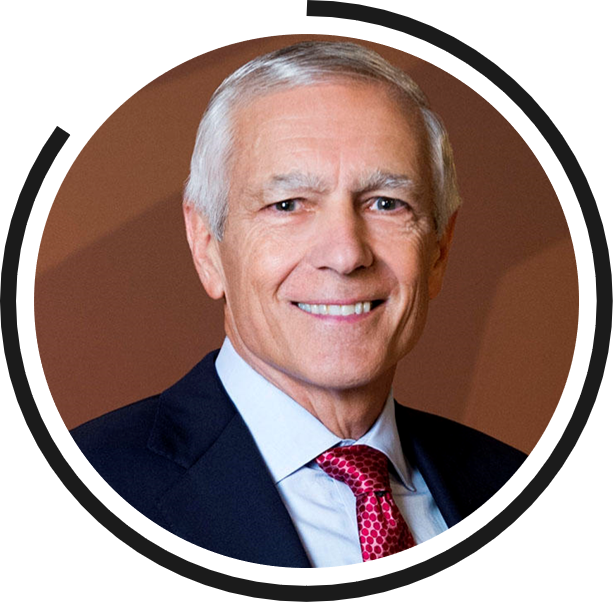



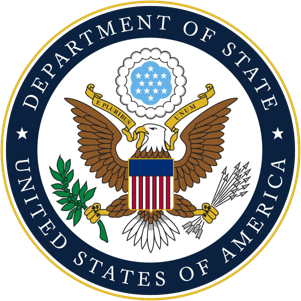


Retired 4-Star General and Former Supreme Allied Commander Wesley K. Clark, KBE
Chairman of Executive Advisory Board for Military and Defense
Wesley Kanne Clark graduated first in his class from West Point Academy in June 1966, and was awarded a Rhodes Scholarship to the University of Oxford, where he obtained a degree in Philosophy, Politics and Economics. His military career involved multiple commands and spanned three decades, propelling him into the international spotlight.
General Clark was awarded the Bronze Star and Silver Star due to his performance under enemy fire during the Vietnam war and was given a Purple Heart for his injuries. He then commanded battalions in Colorado and Germany and served as a commanding general of the U.S. Army’s National Training Center during the Persian Gulf War. As the commanding general of the First Cavalry Division at Fort Hood, Texas, he oversaw three deployments to Kuwait.
From 1994 to 1996, he acted as director of strategic plans and policy for the Joint Chiefs of Staff at the Pentagon. Mr. Clark then took the role of the lead military negotiator for the Bosnian Peace Accords in 1995 before serving as the Supreme Allied Commander Europe, the second-highest military position within NATO, from July 1997 to May 2000. In 2000, Mr. Clark received the Presidential Medal of Freedom from President Bill Clinton for his service to the nation, and was appointed an honorary Knight Commander of the Most Excellent Order of the British Empire (KBE).
In 2003, General Clark announced his bid to run in the 2004 Democratic presidential nomination. He ultimately withdrew from the race in February 2004, endorsing and campaigning for the eventual Democratic nominee, John Kerry. Subsequently, he has held numerous roles with over 100 private and public companies on energy, security, and financial services. Amongst these roles, General Clark serves as the Co-Chair of Growth Energy; Chairman of Clean Terra, Inc.; Director of International Crisis Group; Chairman of City Year Little Rock and president and CEO of Wesley K. Clark and Associates, a consulting firm located in Little Rock.
Chief U.S. negotiator during the North Korean nuclear crisis of 1994 Robert Gallucci, Ph.D.
Chairman of the Executive Advisory Board for Nuclear Policy
Notably, Dr. Gallucci was a former U.S. Ambassador-at-Large and Special Envoy for the U.S. Department of State, also the Chief U.S. negotiator during the North Korean nuclear crisis of 1994 and served as Assistant Secretary of State for Political Military Affairs and as Deputy Executive Chairman of the UN Special Commission following the first Gulf War. Upon leaving public service, Ambassador Gallucci served as Dean of Georgetown University’s Edmund A. Walsh School of Foreign Service for 13 years, where he now serves as Distinguished Professor in the Practice of Diplomacy. Robert Gallucci was named president of the John D. and Catherine T. MacArthur Foundation in 2009.
Dr. Gallucci started his career at the Arms Control and Disarmament Agency and soon after became a division chief in the Department of State’s Bureau of Intelligence and Research. He then became a member of the Secretary’s policy planning staff and then served as an office director in both the Bureau of Near Eastern and South Asian Affairs and in the Bureau of Political-Military Affairs. Dr. Gallucci served as the deputy director general of the Multinational Force and Observers, the Sinai peacekeeping force headquartered in Rome. Soon after he joined the faculty of the National War College as a Professor and eventually appointed as the deputy executive chairman of the United Nations Special Commission (UNSCOM) overseeing the disarmament of Iraq. Dr. Gallucci returned back to Washington D.C. to join the Office of the Deputy Secretary as the senior coordinator responsible for nonproliferation and nuclear safety initiatives in the former Soviet Union.
Dr. Gallucci attended Stony Brook University for his undergraduate studies, later earning his master’s degree and doctorate in politics from Brandeis University. After his post-graduate studies, he taught at Swarthmore College, Paul H. Nitze School of Advanced International Studies at Johns Hopkins University and Georgetown University. He has received fellowships from the Council on Foreign Relations, the International Institute for Strategic Studies, Harvard University, and the Brookings Institution.
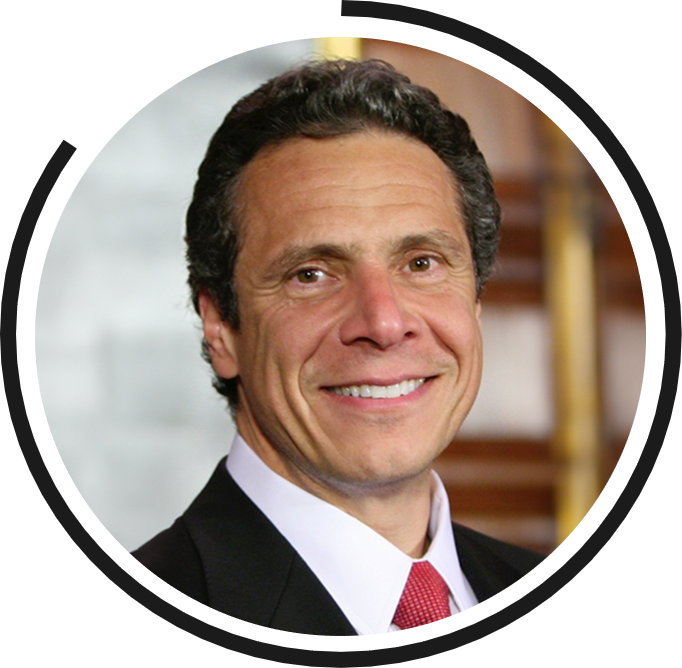
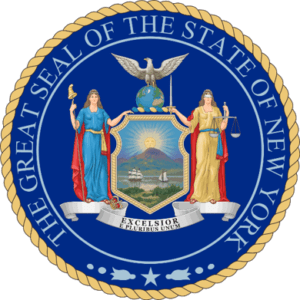
Former Attorney General and Governor of New York Andrew M. Cuomo
Executive Advisory Board Member
Andrew M. Cuomo is the 56th Governor of New York State. Born into an Italian-American family and raised in Queens, Governor Cuomo knew the powerful force for good that government could be and fought during his time in office to make it work for the people of New York.
The son of Matilda and the late Governor Mario Cuomo, Andrew Cuomo learned from a young age the importance of fighting for equality and opportunity. His father’s legacy of public service remains an inspiration in Andrew’s life.
After graduating from Fordham University and Albany Law School, Governor Cuomo led his father’s campaign for governor, and later served as an assistant district attorney in New York. Andrew became committed to fighting homelessness, an issue that led him to serve as HUD Secretary under President Clinton, and continues to be a driving force to this day.
As Attorney General of New York and Governor for 11 years, Andrew Cuomo has vindicated the promise of progressive government by heeding a simple philosophy: deliver real change in real time. Time and again he has fought for and won progressive accomplishments including marriage equality, the most comprehensive paid family leave policy in the nation, a $15 minimum wage, free college tuition for New York’s middle class, a ban on fracking and the nation’s strongest gun safety laws.
Under Andrew Cuomo’s leadership New York once again became the nation’s beacon for social progress. He delivered a stronger economy, a cleaner environment, a fairer criminal justice system, and record number high school graduates attending college. We have conserved more land, enacted a more progressive tax code, and launched the most ambitious infrastructure program in the country rebuilding LaGuardia and JFK airports, Penn Station and the new Mario Cuomo bridge. We have also made historic investments in education, healthcare, and economic development. And during the dark days of COVID it was his voice and his steady hand that helped lead the state and a nation out of the pandemic and through recovery.
Mark Nichols
Executive Advisor for Military, Defense and Policy
Mr. Mark Nichols has an extensive background in European affairs, energy, infrastructure, commodities, emerging markets and national security. During the Clinton Administration, Mr. Nichols was Senior Advisor at the State Department in the Office of the Assistant Secretary for Europe. Nowadays, he is President of Seven Summits, LLC, a strategic advisory firm in Washington DC. He also serves as a Principal at SeaSpire Advisors, a merchant banking firm located in Chicago.
During the Clinton Administration, Mr. Nichols was Senior Advisor at the State Department in the Office of the Assistant Secretary for Europe. He worked on the NATO 50th Anniversary Summit, the Sarajevo Summit and the Stability Pact for Southeastern Europe, a multi-billion dollar program with the EU to rebuild the infrastructure of the region after the wars in Bosnia and Kosovo. During President Clinton’s first term, Mr. Nichols managed humanitarian assistance programs in the Caucuses and Central Asia at USAID in the Bureau for Europe and Eurasia’s Office of Emergency and Humanitarian Assistance.
During his tenure at Wesley K. Clark & Associates, Mr. Nichols represented clients in the energy and defense sectors, including an electric vehicle manufacturer, an interoperability defense communications firm, a biometrics firm and a cyber security company. He also set up and ran the firm’s commodities division in the energy and food sectors and created a partnership with a New York-based investment banking firm focused on Eastern Europe. Prior to joining Wesley K. Clark & Associates, Mr. Nichols was Vice President and Treasurer of General Clark’s 2004 presidential campaign.
Mr. Nichols holds a Masters’ degree in International Affairs from Columbia University and a B.A. in European History from Bard College. He currently serves on the Board of Directors of The Stimson Center in Washington DC, a prominent national security think tank. Previously, he served on a number of non-profit boards, including as Trustee of Lyon College, the Arkansas Zoological Foundation and City Year Little Rock.
Lassina Zerbo, Ph.D.
Chairman of the Executive Advisory Board for Africa
Dr. Zerbo currently serves as a Chairman of the Board of Directors at the Rwanda Atomic Energy Board (RAEB). RAEB is established to set up nuclear facilities based on the international standards, coordinate research and implementation of the Centre for Nuclear Science and Technology project, among other things. “RAEB will play a significant role in accelerating nuclear development in the key sectors of agriculture, health, electricity generation, pharmaceuticals and biotechnology, industry, environment, geology and mining.
Dr. Zerbo also served as the 3rd Executive Secretary of the CTBTO. Through his efforts the CTBTO is recognized today as the world’s centre of excellence for nuclear test-ban verification and a major hub for science diplomacy. Under his leadership, the CTBT global monitoring system has outperformed expectations in the acquisition, management and processing of data. The CTBTO’s swift responses to the nuclear tests conducted by the DPRK serve as example. Dr. Zerbo has also nurtured a culture of excellence, transparency and professionalism, which is valued by member-states and staff alike. He advocates relentlessly for the nuclear dialogues to be more inclusive, participatory and diverse. He has launched landmark initiatives to address the intergenerational gap and promote the CTBT including, CTBTO GEM (Group of Eminent persons) and the CTBTO Youth Group. The youth group, counts today over 850 young professionals from 109 countries and the GEM consist of 28 internationally recognized high level figures.
He is also a member of the Munich Security Council Core Group and was a member of the World Economic Forum and Vice-Chair of the Global Agenda Council on Nuclear Security from 2014-2016.
Michelle Amante-Harstine
Senior Strategic Advisor to the Executive Advisory Board for U.S. Energy Initiatives
Michelle Amante-Harstine, Chief Executive Officer of Congressional Energy Engagement, previously served on the U.S. Department of Energy’s Office of Nuclear Energy where she was Senior Advisor for Stakeholder Engagement. She has developed strategic relationships, designed, developed, and led inaugural initiatives on Capitol Hill such as the Atomic Wings Lunch & Learns and the Up & Atom Morning Briefings, bringing together Members of Congress, Congressional staff, industry, educational institutions, National Laboratories, Embassy representatives and the Administration.
With over 25 years of experience in both the public and private sectors spearheading government, business, community and organization initiatives, Ms. Harstine focuses on advanced nuclear technologies through strategic communication engagements among bipartisan Members of Congress and C-level industry and organization leaders.
Ms. Harstine currently serves on the Tennessee Nuclear Energy Advisory Council.
David Huckeba
Chairman of the Executive Advisory Board for Transportation
Mr. Huckeba began his professional career at United Parcel Service when he was attending college at Emory University. During his thirty-four-year career with UPS he held numerous leadership positions in operations, industrial engineering and in the corporate transportation planning group.
He led the team that developed what is now the tuition assistance program at UPS. This program allows all employees at UPS to gain tuition free two-year, four-year, and advanced degrees while working. He also led community internship programs and learning and development programs in Manhattan and Boston.
Since his retirement in 2010, Mr. Huckeba has been a serial entrepreneur. He has started four transportation focused companies, a restaurant and hospitality company with four restaurant concepts, and a hotel and commercial general contracting company.
Mr. Huckeba attended Emory University, The University of Georgia, and graduated with a BA in Business from DePaul University.


